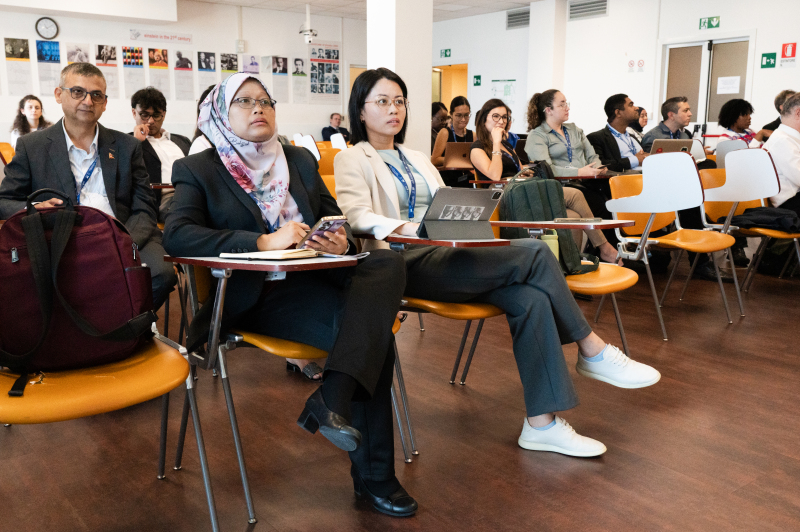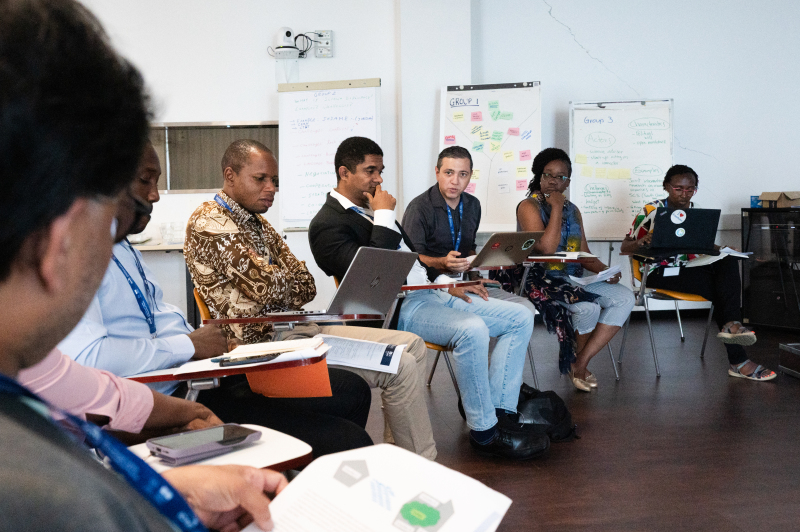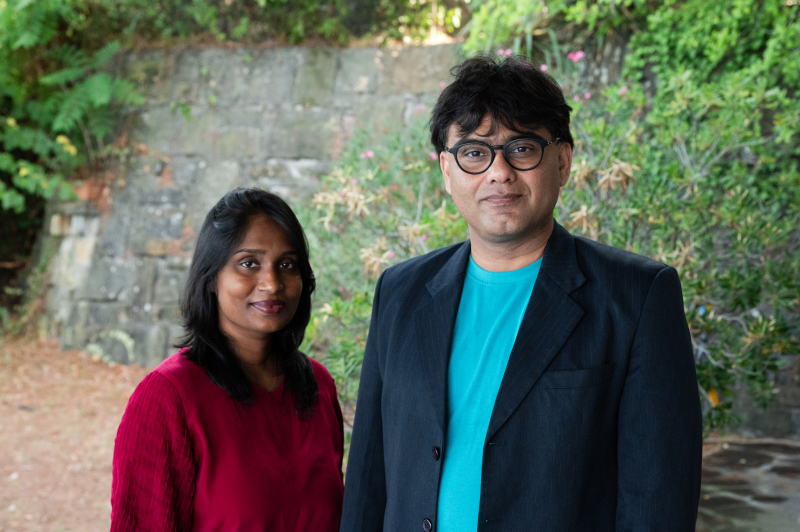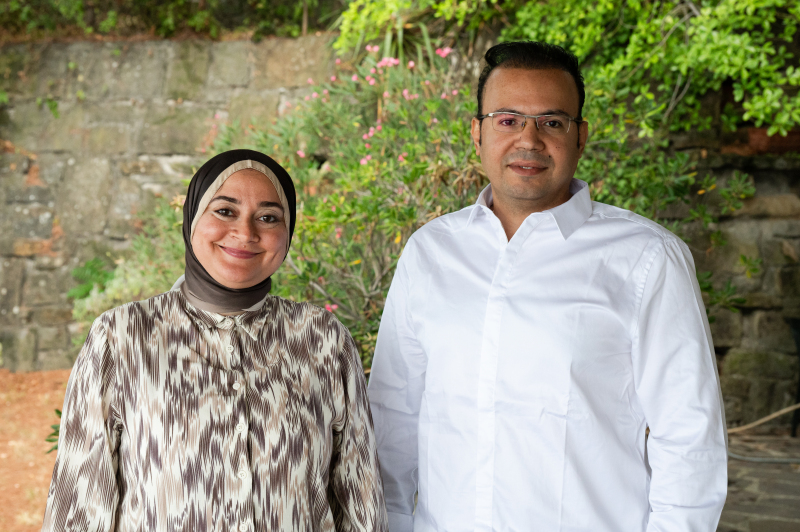
Science diplomacy is more than an idea, it’s a practice. And so aspiring science diplomats need more than lessons in the field, but also experience in how science diplomacy works in actions.
This is why the AAAS-TWAS Course on Science Diplomacy features simulations in which course participants take on a role in a fictionalized, but common, negotiations between differing interests in which science is central. The 12th edition of the course, held in July this year, featured such a simulation, putting attendees both in the shoes of national delegations and international organizations seeking a solution to a difficult problem.
For the course, TWAS and the American Association for the Advancement of Science (AAAS) brought together 10 pairings of scientists and policymakers from 10 countries, including the Plurinational State of Bolivia, Nepal, and Sri Lanka, in Trieste, Italy. The course receives key financial support from the Swedish International Development Cooperation Agency (Sida) and the Golden Family Foundation. This year, the course also received financial support from the Organization for Women in Science for the Developing World (OWSD).

Protecting pangolins
In one simulation, three countries struggled with the ramifications of illegal pangolin trafficking taking place in a forest they all shared. Additionally, a fourth country from outside the region was interested in funding development projects between the two larger nations. This introduced complex dynamics to international relations as the delegations factored local interests against distant influence.
One of the countries contending with the forest in their lands was represented by the course’s Sri Lankan participant pair. Seyed Shahmy Seyed Ismail Imam, in real life a senior scientist at the Sri Lanka National Science and Technology Commission at Battarmulla, played the country’s minister of foreign affairs. Mututantrige Nimshi Loran Fernando, a chemist at the Colombo International Nautical & Engineering College (CINEC) campus in Malabe, acted as the country’s science minister.

In time, Seyed Ismail Imam and Fernando proposed a framework for equal benefits across negotiating countries. This proved difficult, because the poachers were from one of the other countries, which was also conducting research work on pangolins—this made them suspect that something secret was going on. They negotiated who would be the co-chair of the platform and how they would approach sustainable forest management, and tried to find a settlement in which everyone was satisfied. In the end, to applause, all the countries’ representatives shook hands, having used institution building to forge a path forward.
Fernando said this was her first experience with such an exercise and that even though it was a simulation, it felt like it was a real negotiation once they felt comfortable assuming their roles. “I learned how I should negotiate,” she remarked, “how I should deal with other countries, and how as a scientist, I could be a good diplomat as well.”
Seyed Ismail Imam said it was his third experience taking part in a science diplomacy exercise, and saw the course as a means to refresh his knowledge and recharge his motivation. He praised the presentations before the simulation.
“We learned a lot from this programme, and we want to continue with this format,” he said. “So if we can develop some similar programmes, even virtually, it will keep our knowledge continually updated and motivate us to keep us in the field—as well as check on the alumni and how they implement the knowledge gained from these workshops.”
Hydroelectric negotiations
In the other simulation, participants struggled to settle the ramifications of a hydroelectric dam in a river that travelled through several countries. One participant pair, both from Egypt, found themselves in the role of representatives of an international organization trying to mediate between countries. They remarked that this put them on the outside looking in of an issue that—being from the nation that contains the mouth of the Nile—they usually think of in terms of their national interests.
“It was a new experience for us. We were responsible for the Center for Human Rights and Peace Building, and so we were an independent organization that could see all the different views at play,” said Amr Radwan, Head of Research and Innovation Department of the Egyptian Academy of Scientific Research and Technology in Cairo, Egypt. “Bringing different parties together, including intragovernmental organizations, is important because you can get a new perspective. I really liked it.”

His partner in the simulation, Lobna Ahmed Said Osman, is a microelectronics researcher at Nile University in Giza, Egypt. She said that they tried to make sure every voice was heard during negotiations.
“This was something important, to make sure everybody understood the effect of the dam itself because it would harm a lot of countries,” she said. “We’d try to bring everybody to the table and give them the bigger picture. It was enlightening.”
Osman added that it demonstrated strongly how science cannot work alone, but must be joined with policy in order to make a difference. She also said it demonstrated how useful it is for scientists to have some policy and negotiation experience.
“I liked the simulation because it involved us,” she said. “It wasn’t just lectures; it’s like learning by practice. This is something very important, and makes us think outside the box.”
Sean Treacy

